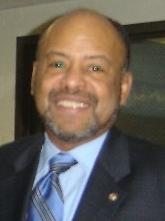AFT Pennsylvania President Ted Kirsch applauded a bill proposed by state Rep. James Roebuck, D-
 Philadelphia, that would change the way charter schools are funded in Pennsylvania and return $395 million or more to local school districts without raising taxes.
Philadelphia, that would change the way charter schools are funded in Pennsylvania and return $395 million or more to local school districts without raising taxes.

“These reforms are long overdue,” said Kirsch, who represents teachers and staff at traditional public, charter and private schools across the state. “Former Auditor General Jack Wagner produced a report in 2010 that showed that revising the charter and cyber charter school funding formulas would return nearly $400 million to school districts across the state. With so many schools struggling to maintain vital programs, it’s crucial that we fund all public schools fairly and based on the true cost of providing children with an education.”
Rep. Roebuck’s bill would limit funding reserves that are permitted for cyber and charter schools; end the pension “double dip” that results in school districts and the state reimbursing charters for employee pension costs twice, preventing overpayment to charter and cyber schools for special education services and requiring the Pennsylvania Department of Education to conduct annual reconciliation of tuition payments so that overpayments to charters can be returned to districts.
"While I do support charter schools, I believe major revisions are needed regarding the governance, financing and accountability of charter and cyber charter schools. These revisions will result in significant savings to our school districts, and I believe this is the most far-reaching reform bill of its kind introduced in Pennsylvania in this session," Roebuck, Democratic chair of the House Education Committee, said.
"Two years ago, Pennsylvania cut about $900 million from K-12 education, and the governor's new budget proposes to restore only about 10 percent of that cut. This reform bill would return four times that proposed increase to school district budgets -- without raising taxes," he said.
The estimated savings are based on estimates in a 2012 report by then-Auditor General Jack Wagner. In that report, Wagner found that Pennsylvania has overpaid charter schools because its formula is pegged to educational costs in the sending school district rather than on the actual educational cost to the charter or cyber charter school.
"Charter and cyber charter schools are funded at the same per-student rates as district public schools, even though charters are not required to provide the same services," Kirsch said. “This bill would go a long way to correcting the situation.”
“In addition to providing better fiscal accountability, it would also provide greater transparency and protection against conflicts of interest,” Kirsch said. “We’ve seen too often that management companies and for-profit operators have increased administrative costs with bloated salaries and involved charter schools in unethical relationships with vendors. We are simply too short of education money to allow tax dollars to be expended without adequate transparency and accountability.
“Rep. Roebuck’s bill would end the pension “double-dip” payments that have benefited charter schools, bring cyber charter funding in line with actual cyber charters costs and lower the cost of payments to brick-and-mortar charter schools to bring them into line with national averages,” said Kirsch.
“We welcome the opportunity to work with Rep. Roebuck and 40 other lawmakers from both parties who want to make sure that our funding mechanisms do not leave any child at a disadvantage," Kirsch added.
